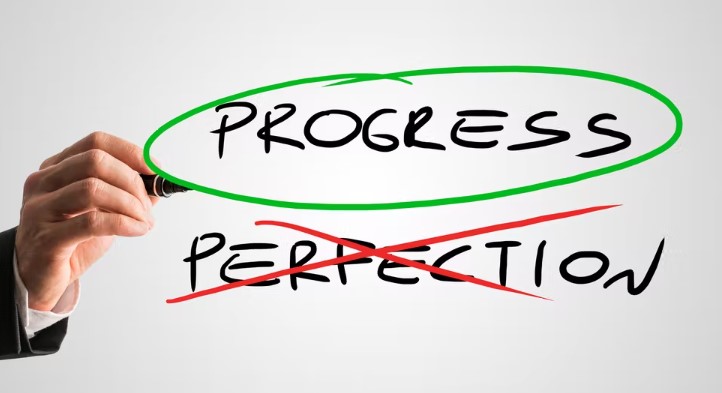When it Comes to Jobsite Safety Focus on Progress, Not Perfection
Originally Published by: EHS Today — July 11, 2022
SBCA appreciates your input; please email us if you have any comments or corrections to this article.
As I write this, my partner is spread out on the couch, having finished grading final exams that are piled on the seat cushions. I’m sitting in my brown leather club chair, proofreading this issue, when he starts talking to himself. That isn’t unusual, but I look up just in case he’s talking to me.

He wasn’t, but he happily starts telling me about his students’ performance. He shares the scores of some students and details how they improved throughout the semester. (To be clear, he doesn’t disclose any students’ identities.) For one student who was on the bubble, he bumps up their grade because they did so well on the comprehensive final.
He’s considering students’ performance and progress as he determines final grades, and it got me reconsidering my own metrics.
I’ve been on a monthslong exercise regimen. I said my goal was to build strength and improve flexibility, which is true—to an extent. Mostly, I want to lose the pandemic pounds so I can fit back into my dress slacks.
I haven’t seen much change, and frankly, I’m frustrated. Then I thought about how I’m using slightly heavier free weights, how I’m able to complete longer YouTube workout videos and how my legs weren’t shaking after a two-hour walk a few Saturdays ago.
In other words, I stopped thinking about what I can’t do and started thinking about what I can do. It has changed my whole outlook.
We all have either been assigned or assigned ourselves lofty and seemingly impossible tasks. I’ve read enough about goal setting to know that breaking down one big goal into several smaller tasks can allow progress to be measured or quantified.
That’s certainly true, and there are many other techniques, such as habit stacking, to help you build momentum. In fact, the debt snowball method, whereby you focus on paying off debt balances from smallest to largest, is based on the idea that getting rid of one debt motivates you and makes it psychologically easier to tackle them successively until you are debt-free.
Safety professionals are tasked with, among other things, creating a safe workplace. I imagine these tasks feel overwhelming at best and unattainable at worst. There are so many steps, pieces, parts and people involved in achieving these goals that it can be easy to get stuck or feel defeated.
I think the solution may be to stop looking toward the end goal—which is never really the end, anyway—and start admiring the process. In other words, we can appreciate the progress we’re making if we take our blinders off.
For example, I have been so focused on exercise that I hadn’t stopped to consider whether what I’m eating will support my weight loss goals. Diet is just as, if not more, important than exercise when it comes to weight loss, but I somehow forgot that.
I think our desire to eliminate, solve or achieve our goals makes us so laser-focused that it’s easy to lose track of the progress. We stop paying attention to the process and zero in on the final result. We also stop questioning our goal and whether our strategy is best suited for this endeavor in the first place.
Our drive is ironic—or perhaps problematic—because we will never fully finish. If we meet our end target, we have to shift our efforts to replicate that success. Or we keep striving toward a goal that proves elusive. Or we realize that this goal no longer serves us, so we set a new one.
Therefore, instead of endlessly toiling away, let’s pause and take it all in. When we do, we’ll realize that perfection isn’t realistic, and change doesn’t happen overnight. However, progress occurs incrementally. When we notice it, we should celebrate it. That allows us to recognize growth and renew our efforts so we can persist.
Of course, just because you achieve excellence once doesn’t guarantee it’ll happen again. But if you have a solid strategy and make it routine, you might continue to maintain that level of excellence. And that is even better than illusory perfection.
